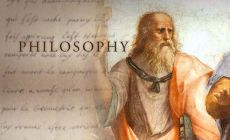Đề thi giữa HK2 môn Tiếng Anh 6 KNTT năm 2022-2023
Trường THCS Lý Thường Kiệt
-
Choose the word which has the underlined part pronounced differently from the rest
Câu 1:
Choose the word which has the underlined part pronounced differently from the rest: their, there, think, these
A. their
B. there
C. think
D. these
-
Câu 2:
Choose the word which has the underlined part pronounced differently from the rest: earth, feather, theater, thanks
A. earth
B. feather
C. theater
D. thanks
-
Câu 3:
Choose the word which has the underlined part pronounced differently from the rest: carry, basket, manage, garage
A. carry
B. basket
C. manage
D. garage
-
Câu 4:
Choose the word which has the underlined part pronounced differently from the rest: towel, lower, crowded, rainbow
A. towel
B. lower
C. crowded
D. rainbow
-
Câu 5:
Choose the word which has the underlined part pronounced differently from the rest: bought, found, count, loud
A. bought
B. found
C. count
D. loud
-
Choose the correct word A, B, or C for each of the gaps to complete the following text
Physical activity is the (6) _________obvious benefit of sports participation. Children often spend too much time watching television or (7) _________ video games. But sports practices and games provide an opportunity for exercise that can help keep kids in shape and (8) _________. Sports participation can help children develop social skills that will benefit them (9) _________ their entire lives. They learn to interact not only with other children their age, (10) also with older individuals in their coaches and sports officials. Kids learn leadership skills, team-building skills and communication skills that will help them in school, their future (11) _________ and personal relationships.
Câu 6:
(6) _________
A. more
B. much
C. most
D. least
-
Câu 7:
(7) _________
A. doing
B. playing
C. paying
D. watching
-
Câu 8:
(8) _________
A. healthy
B. wealthy
C. happy
D. funny
-
Câu 9:
(9) _________
A. for
B. on
C. as
D. throughout
-
Câu 10:
(10) _________
A. and
B. so
C. but
D. then
-
Câu 11:
(11) _________
A. world
B. career
C. game
D. shape
-
Read the passage and choose the best answer
At the beginning of TV history, there were several types of TV technology. One system was a mechanical model based on a rotating disc. (Rotating discs are discs that spin like CDs.) The other system was an electronic model. In 1906, Boris Rosing built the first working mechanical TV in Russia. In the 1920s, John Logie Baird in England and Charles Francis Jenkins in the United States demonstrated improved mechanical systems. Philo Taylor Farnsworth also showed an electronic system in San Francisco in 1927. His TV was the forerunner of today's TV, which is an electronic system based on his ideas.
Now TV is everywhere. Before 1947, there were only a few thousand televisions in the U.S. By the 1990s, there were televisions in 98% of American homes.
Câu 12:
Rotating means ____________
A. going up and down
B. going back and forth
C. spinning
D. staying still
-
Câu 13:
Who invented the mechanical TV model?
A. Boris Rosing
B. John Logie Baird
C. Charles Francis
D. Philo Taylor Farnsworth
-
Câu 14:
Which of the following statements is wrong?
A. More than one TV technology was developed in the history.
B. Nowadays TV is a popular household equipment.
C. John Logie Baird and Charles Francis Jenkins invented an electronic TV based on the previous mechanical one.
D. No inventors mentioned in the passage came from Asia.
-
Câu 15:
Whose invention is the current TV mostly based on?
A. Boris Rosing
B. John Logie Baird
C. Charles Francis Jenkins
D. Philo Taylor Farnsworth
-
Câu 16:
How many TVs were in the US in 1945?
A. A few hundred
B. A few thousand
C. A few million
D. A few billion
-
Make questions for the underlined part in each sentence
Câu 17:
Millions of viewers watch the EURO football match on TV.
A. How many viewers watch the EURO football match on TV?
B. How much viewers watch the EURO football match on TV?
C. How long viewers watch the EURO football match on TV?
D. How often viewers watch the EURO football match on TV?
-
Câu 18:
We can meet in front of theater at 7 p.m.
A. What hour can we meet in front of theater?
B. What time can we meet in front of theater?
C. What class can we meet in front of theater?
D. What purpose can we meet in front of theater?
-
Câu 19:
Peter wants something to eat because he is hungry now.
A. What does Peter want something to eat?
B. Where does Peter want something to eat?
C. Why does Peter want something to eat?
D. When does Peter want something to eat?
-
Câu 20:
We go to the zoo twice a month.
A. How much do we go to the zoo?
B. How far do we go to the zoo?
C. How long do we go to the zoo?
D. How often do we go to the zoo?
-
Câu 21:
TV viewers can know about the weather in their regions from the weather forecast.
A. Why can TV virewers know about from the weather forecast?
B. What can TV virewers know about from the weather forecast?
C. How can TV virewers know about from the weather forecast?
D. Who can TV virewers know about from the weather forecast?
-
Choose the best answer
Câu 22:
TV _____ can join in some game shows through telephone or by email.
A. weathermen
B. people
C. viewers
D. newsreaders
-
Câu 23:
______ are films by pictures, not real people and often for children.
A. Documentary
B. Cartoons
C. Love stories
D. Detective story
-
Câu 24:
The man _______ the door and _________ pieces of paper.
A. open/ thrown
B. opened/ threw
C. opened/ thrown
D. open/ throw
-
Câu 25:
Peter ______ three goals for our team and made it a hat trick.
A. scores
B. scored
C. plays
D. played
-
Câu 26:
We _______ in the grocery store and ________ some sandwiches.
A. stopped/ bought
B. stop/ buy
C. stop/ bought
D. stopped/ buy
-
Câu 27:
Did you ever _______ of such a thing?
A. hear
B. hears
C. heared
D. heart
-
Câu 28:
Please _________ your book. Now we move to listening skill.
A. open
B. opening
C. to open
D. opened
-
Câu 29:
If you have any questions, please _________ your hand.
A. raising
B. raised
C. raise
D. put down
-
Câu 30:
"Let’s learn" teaches children to study Maths. It’s a(n) _______ program.
A. live
B. popular
C. entertaining
D. educational
-
Câu 31:
We use a ______ to change the TV channels from a distance.
A. remote control
B. TV schedule
C. newspaper
D. volume button
-
Câu 32:
What _____ you ______ last night? – I _____ my homework.
A. did/ do/ did
B. did/ did/ did
C. did/ do/ done
D. did/ do/ do
-
Câu 33:
The red double-decker bus is London’s famous __________.
A. sign
B. signal
C. symbol
D. logo
-
Câu 34:
He likes playing basketball _____ it is so funny.
A. so
B. because
C. but
D. although
-
Câu 35:
_______ the newsreader on BBC One reads very fast, my brother can hear everything in the news.
A. But
B. Although
C. When
D. Because
-
Câu 36:
"Which _______is Britain in?" – "Europe."
A. country
B. continent
C. city
D. area
-
Câu 37:
_______ she is lazy, she passed the exam last week.
A. Because
B. Although
C. So
D. When
-
Câu 38:
A: _________ do people like watching game shows?
- B: Because they are educational and entertaining.
A. When
B. Where
C. Why
D. How
-
Câu 39:
_______ can kids learn from TV programmes? - They can watch educational programmes on TV.
A. Where
B. What
C. When
D. How
-
Câu 40:
Vietnam is a country in _______.
A. Asia
B. Europe
C. Africa
D. Australia














